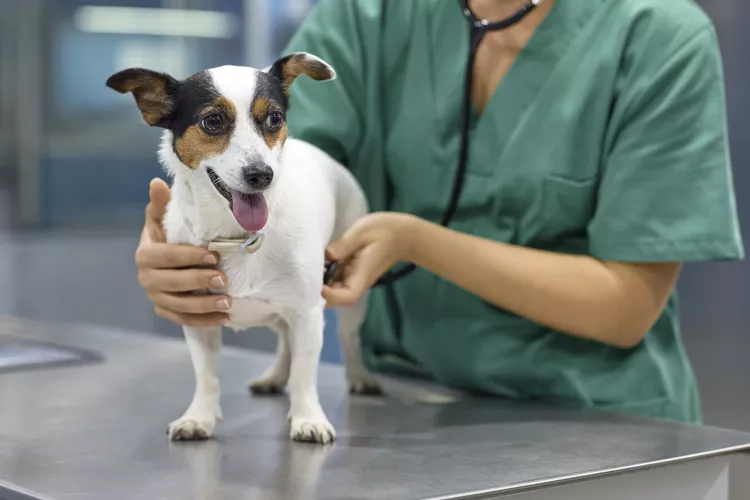
Upper respiratory infections are very common in cats, especially kittens and shelter cats. These contagious infections, which cause runny noses and throat irritation, usually respond well to treatment with antibiotics and supportive care. Some cats can become quite ill, though, and severe cases can progress to pneumonia. Vaccinations help protect cats from most respiratory illnesses and help lessen the severity of infections that do occur.
The term upper respiratory infection describes a complex variety of diseases that can occur alone or in combination. Generally, all of these diseases produce a similar set of symptoms that mainly affect the upper respiratory tract (i.e. the nose and throat).
The symptoms of upper respiratory infections in cats can vary in severity, but typically include any or all of the following:
Upper respiratory infections directly affect the nose, throat, and lungs, and a cat's body may respond with a fever in an attempt to fight off the virus or bacteria. If the infection is not promptly treated, a cat will become lethargic and may refuse food.
The majority of cases are due to viral infections with herpesvirus and/or calicivirus. There are numerous organisms that cause upper respiratory infections in cats, but the common culprits are:
Kittens and shelter cats are at high risk. Upper respiratory infections are most common in cats who regularly have contact with other cats where cats are housed together in places such as shelters.
Unvaccinated cats, cats that are under stress, and cats that are immunosuppressed because of conditions such as feline leukemia virus (FeLV) or feline immunodeficiency virus (FIV) are also at greater risk. Flat-faced cats, such as Persians, seem particularly susceptible to upper respiratory infections.
Upper respiratory infections are spread via the discharge from the nose and eyes, either by direct contact with infected cats, aerosol contamination, or by contact with objects like dishes or bedding that have been contaminated with secretions from infected cats.
A diagnosis of upper respiratory infection can often be made on the basis of history and symptoms. Further diagnostic tests can be done by examining the nasal or ocular secretions to identify the organisms causing the disease.
For most cats, treatment is aimed at managing the symptoms. Though most cases are caused by viruses, antibiotics may be prescribed to fight bacterial infections that often occur secondarily to viral infections. An eye ointment may be prescribed as well, and medications to help control the nasal congestion and discharge may also be prescribed by your veterinarian.
Cats should be kept quiet and comfortable during the course of an upper respiratory infection. Carefully wipe away discharge from the eyes and nose, and administer all medications as prescribed by your vet. A humidifier can often help with managing congestion and pill pockets can make it easier to administer your cat's medication.
Because cats might lose their sense of smell, their appetites may suffer. You can try feeding their favorite canned food or a prescription diet that provides extra nutritional support if your cat's appetite is diminished. If your cat won't eat or drink at all, consult your veterinarian promptly.
Most cases clear up within 10 days, although sometimes upper respiratory infections will hang on for a few weeks. For cases that do not respond to the usual supportive treatment, antiviral medications can be tried. In cases where cats won't eat or drink or have serious breathing difficulties, hospitalization may be required. Intravenous fluids may be given to prevent dehydration and oxygen therapy can be used if necessary.
Cats that suffer prolonged or repeated bouts of respiratory infections should be checked for FeLV and FIV even if the pet tested negative previously.
Most cats with mild to moderate infection respond well to supportive treatment with antibiotics as needed. Cats with severe infections or underlying illnesses may have a harder time recovering, are more susceptible to pneumonia, and occasionally die due to complications of respiratory infection.
In the case of a herpes viral infection, cats that recover carry the virus forever and can have flare-ups from time to time. With herpesvirus, the infection is usually only "active" after occurrences of stress and remains asymptomatic the rest of the time.
Vaccines against both herpesvirus and calicivirus are part of the routine vaccination protocol that is recommended by veterinarians. Young kittens are not fully protected until a full series of booster vaccines have been given.
Minimizing stress, as well as preventing contact with infected cats, can also reduce the incidence of upper respiratory infections.
No matter the cause, viral or bacterial, upper respiratory infections are highly contagious to other cats. It's imperative to keep cats isolated while symptomatic to prevent the spread of the illness to other cats.

10 Obscure, Little-known Canine Facts in Honor of National Dog Day
With National Dog Day upon us, it's time to celebrate everything about our favorite pets—even the weirder stuff. Here are 10 obscure facts about dogs you probably didn't know.
Exploring the Different Types of Pet-Friendly Beaches
Are you looking for pet-friendly beaches? Learn about the different types of pet-friendly beaches, their locations, and tips for visiting them with your pet.
Toxic Chemicals & Household Items That Can Poison Dogs
There are many things in and around your home that can endanger your dog. Learn which chemicals and household items can poisin your dog.
Bronchitis in Dogs
Is your dog coughing and feeling unwell? It could be due to respiratory inflammation called bronchitis. Learn the causes, treatment, and prevention.
Choking in Dogs
A dog can occasionally swallow something incorrectly and start choking. Find out how you can tell if your dog is choking and what you can do about it.
Why Does My Dog Smell So Bad?
Does your dog smell? Find out what could be causing these unpleasant odors and if it's something that needs more than just a bath to fix.
Is Rosemary Safe for Dogs?
Rosemary is used both for cooking and as a supplement with many reported health benefits in people, so you may be wondering if it is safe to give to your dog. Rosemary is considered non-toxic for dogs but with some caveats.
Can Dogs Eat Blueberries?
Dogs can safely eat blueberries. Blueberries are packed with nutrients and can be a great addition to your dog's diet when fed in moderation. Learn more about the benefits, risks, how to incorporate blueberries into their diet, and other fruits dogs can eat.
Dog Food Basics
Are you feeding your dog the best way possible? Check out these dog feeding tips to keep your dog healthy and happy.
Swedish Vallhund: Dog Breed Characteristics & Care
The Swedish vallhund makes for a high-energy and affectionate companion. Learn about the breed's history, health, exercise needs, and more.
Becoming a Show Dog: Getting Started
Do you have the perfect puppy? Have you considered showing her in a dog show? There's much more to showing than showing up! Here's how to get started.
How to Care for a Hairless Cat
Hairless cats make great pets but they aren't without their own challenges and requirements. Read on to learn how to best care for your furless feline.
British Shorthair: Breed Profile, Characteristics & Care
The British Shorthair is a calm, affectionate cat that looks and feels like a plush teddy bear. Here's what you need to know about this popular breed, including appearance, temperament, health, and care.
Tonkinese: Cat Breed Profile, Characteristics & Care
The Tonkinese cat is a perfect mix of the Siamese and Burmese—smart, sociable, and sweet. Learn about the Tonkinese breed.
How to Stop Your Cat From Chewing Electrical Cords
Cats are known to pounce and attack inanimate objects, like electrical cords. Learn how to prevent your cat from ambushing objects that may harm it.
How to Stop Aggression in Kittens
Kittens may show aggressive behavior for several reasons. Sometimes their play gets too aggressive while other times the kitten is afraid or upset. Learn how to spot and curb aggression in kittens.
46 Egyptian Cat Names
Whether inspired by notable Egyptian deities, locales, or pharaohs, Egyptian cat names can bring out the divinity of your noble feline companion.
How to Tell If a Kitten is a Boy or a Girl
If you're wondering whether your new kitten is a boy or a girl, here are three ways to help determine the sex of your cat.
Signs Your Cat Is Aging and When to See the Vet
Expect some changes when your cat ages. Learn to differentiate between normal and potential medical problems for your elderly cat.
Coronavirus in Cats
Feline coronavirus (FCoV) rarely harms cats but can lead to another life-threatening illness. Learn the causes, treatment, and prevention.